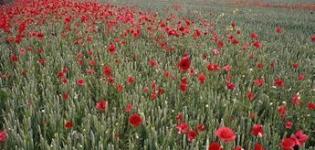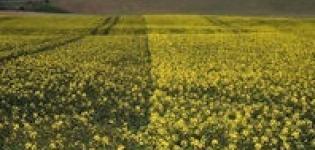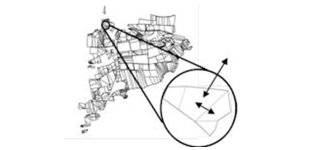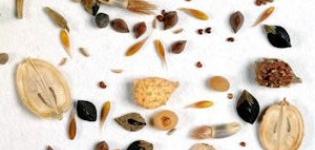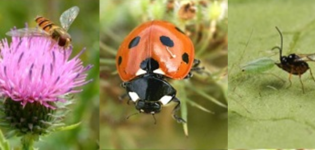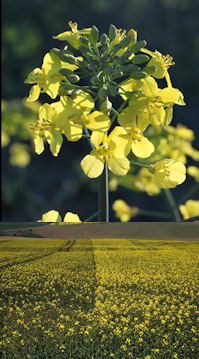 Crops give rise to volunteers (weeds within fields) and ferals (living outside fields) that can hold and transmit genes and traits and interact with wild plant relatives. Volunteers such as oilseed rape and beet are important competitors of crops. Volunteers and ferals cause significant problems for managing coexistence between different types of crop, particularly GM and non-GM varieties. Research in this area began in the early 1990s and by a combination of population biology, landscape-scale approaches, molecular detection and modelling assumed a global lead. Concepts, methods and models are increasingly relevant to a range of non-GM problems.
Crops give rise to volunteers (weeds within fields) and ferals (living outside fields) that can hold and transmit genes and traits and interact with wild plant relatives. Volunteers such as oilseed rape and beet are important competitors of crops. Volunteers and ferals cause significant problems for managing coexistence between different types of crop, particularly GM and non-GM varieties. Research in this area began in the early 1990s and by a combination of population biology, landscape-scale approaches, molecular detection and modelling assumed a global lead. Concepts, methods and models are increasingly relevant to a range of non-GM problems.
Current funding: EU AMIGA; PhD project. Previous funding: many projects from Defra UK, Scottish Government, BBSRC, NERC, EU FP6 SIGMEA.
For more information contact Geoff Squire for gene flow and coexistence or Graham Begg for statistics and modelling.
Publications
-
Squire GR, Lecomte J, Husken A, Soukup J, Messean A, 2013. Contributions of pollen and seed to impurity in crops – a comparison of maize, oilseed rape and beet. In Genetically modified and non-genetically modified food supply chains: Co-existence and traceability, 23-34. Ed Y Bertheu. Blackwell.
-
Devos, Y., Hails, R.S., Messéan, A., Perry, J.N. and Squire, G.R. 2012. Feral genetically modified herbicide tolerant oilseed rape from seed import spills: are concerns scientifically justified? Transgenic Research 21, 1-21
-
Sausse, C., Colbach, N., Squire, G.R. and Young, M.W. 2012. How to manage the impact of gene flow on oilseed rape grain quality? Simulation case studies of three contrasted landscapes. European Journal of Agronomy 38, 32-42
-
Bagavathiannan M.V., Gulden R.H., Begg G.S., Van Acker R.C. 2010. The demography of feral alfalfa (Medicago sativa L.) populations occurring in road side habitats in southern Manitoba, Canada. Environmental Science and Pollution Research 17, 1448-1459.
-
Squire, G.R., Breckling, B., Pfeilstetter, A.D., Jorgensen, R.B., Lecomte, J., Pivard, S., Reuter, H. and Young, M.W. 2011. Status of feral oilseed rape in Europe: its minor role as a GM impurity and its potential as a reservoir of transgene persistence. Environmental Science and Pollution Research 18, 111-115.
-
Messéan, A., Squire, G.R., Perry, J.N., Angevin, F., Gomez, M., Townend, P., Sausse, C., Breckling, B., Langrell, S., Dzeroski, S. and Sweet, J. 2009. Sustainable introduction of GM crops into European agriculture: a summary report of the FP6 SIGMEA research project. Oléagineux, Corps Gras, Lipides 16, 37-51.
-
Begg, G.S., Elliott, M.J., Cullen, D.W., Iannetta, P.P.M. and Squire, G.R. 2008. Heterogeneity in the distribution of genetically modified and conventional oilseed rape within fields and seed lots. Transgenic Research 17, 805-816.
-
Begg, G.S., Cullen, D.W., Iannetta, P.P.M. and Squire, G.R. 2007. Sources of uncertainty in the quantification of genetically modified oilseed rape contamination in seed lots. Transgenic Research 16, 51-63.
-
Timmons, A.M., Charters, Y., Crawford, J.W., Burn, D., Scott, S., Dubbels, S.J., Wilson, N.J., Robertson, A., O'Brien, E.T., Squire, G.R., Wilkinson, M.J. 1996. Risks from transgenic crops. Nature 380, 487.
-
See also Bagavathiannan et al. 2012.
